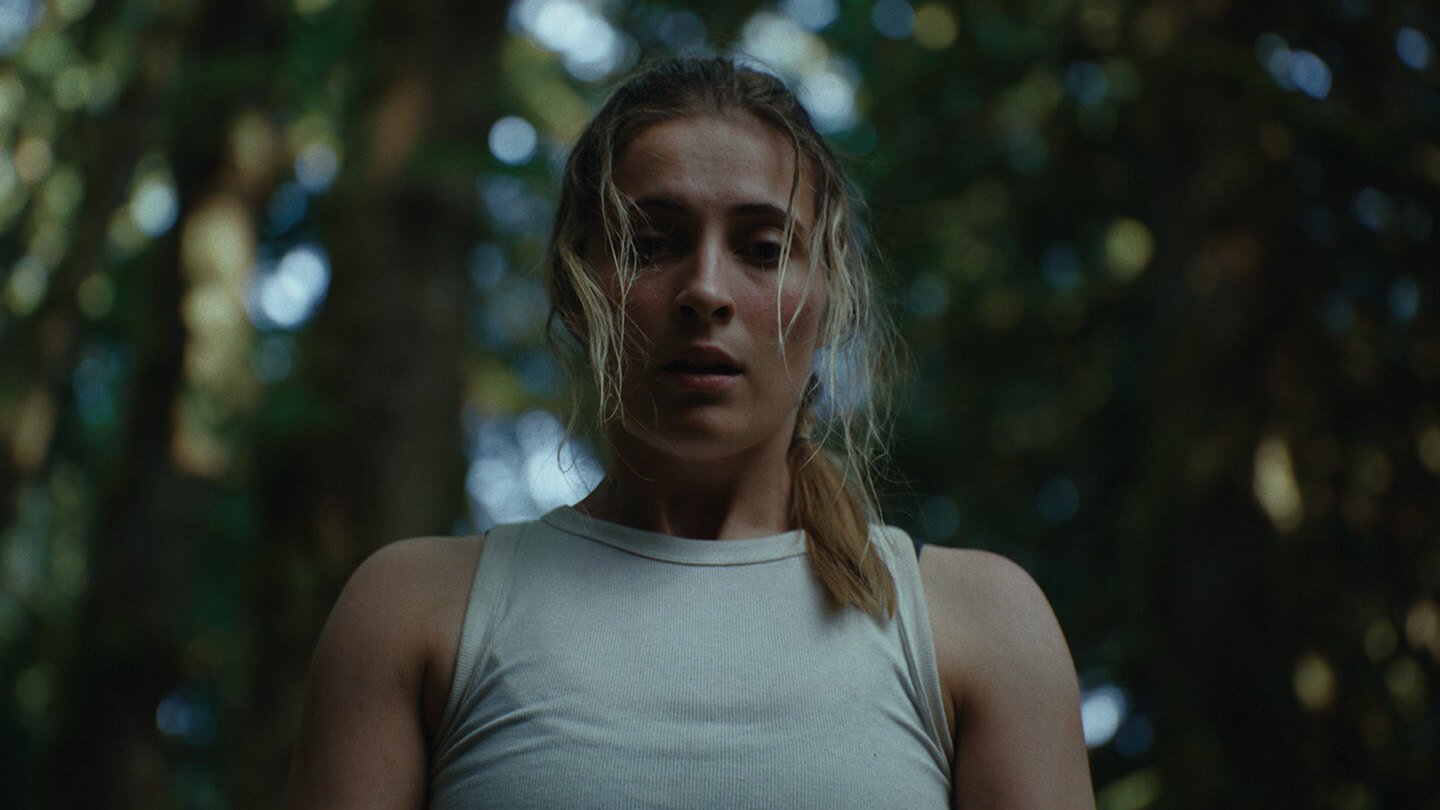Opening with a sequence of a woman running through the woods while gunshots ring out around her, Scott Talbot’s The One That Got Away seems to give a very different meaning to getting away than what you would infer from the title, but it lets you know within the first couple of minutes that it is, in fact, going to break your heart. You just do not realise the way in which it will do that.
A group of three live scavenging their way through the Pacific Northwest which does not yet show the signs of its new post-apocalypse world. A few abandoned cabins and houses here and there, the paint still intact, the sofas still soft—and with the people, ammunition still available. The instability then is still fresh, hearts still aquiver with fear rather than hardened by experience. And as for alliances, they are yet to solidify into loyalty, however begrudging.
In-group hostilities plague the trio as much as unrequited love, and they have essentially the same reason. Leah (Lydia Kelly) and Ayden (Benjamin Rigby) dislike each other because Ayden is dating Leah’s best friend, Kate (Cecily Elliott), and Leah is in love with Ayden’s girlfriend. Kate. Beloved to sanctity.
As the two play a tug of war to which Kate is almost completely oblivious, their mutual jealousies lead the group a hair too close to peril when a different, vengeful group finds their hideout.
Kelly, with her screen presence and a tortured, tragic role, is the unquestioned star of the film. Her performance smooths over some of the rougher edges of the writing as you get sucked into the three-pronged conflict: her rivalry with Ayden, her friendship with Kate, and her unrequited feelings which have no place to go and so weigh her down worse than the apocalypse. Taken on their own, Ayden and Kate are nondescript characters, your typical straight couple. But the inconvenient presence of Leah (herself unflatteringly, painfully flawed) brings out the worst, and some glimpses of the better, in each such that Kate’s all-in dependence on Ayden at the expense of everything else blossoms into a full-blown conflict that changes the direction of the narrative.
What was presented as a cyclical narrative shoots off into a different tangent (for the better), accompanied by the magnetic pull of a layered score. Of the cinematography and editing, the latter is impressively sharp while the camera develops a lavish sense of scope within the 14-minute runtime.
In fact, The One That Got Away reads like the precursor of a feature, whether you look at the carefully planted markers of history and socio-political context, or the sculpted lighting. Let’s hope Kelly keeps her character.
The One That Got Away: The Thrill and Heartbreak of (Unrequited) Love in Post-Apocalypse Story
-
Direction
-
Cinematography
-
Screenplay
-
Editing
-
Music
